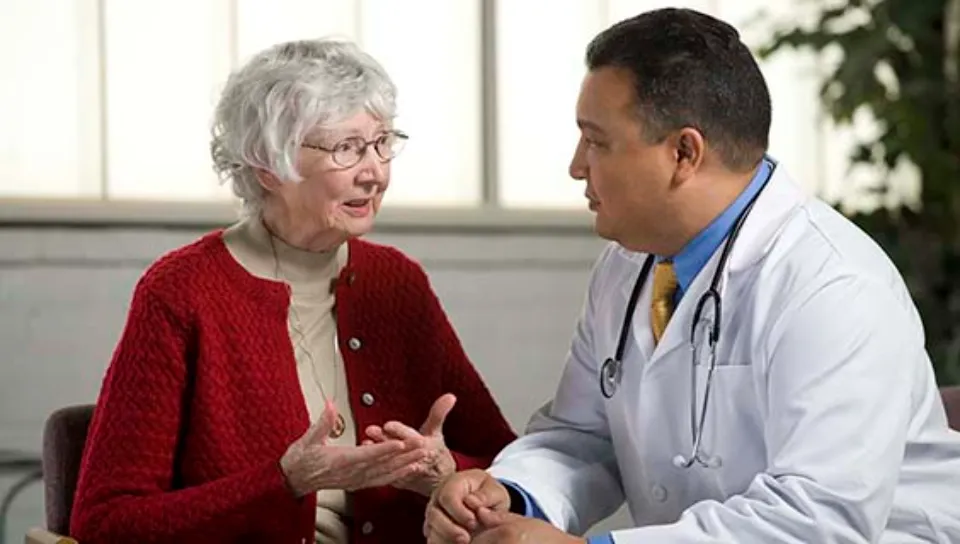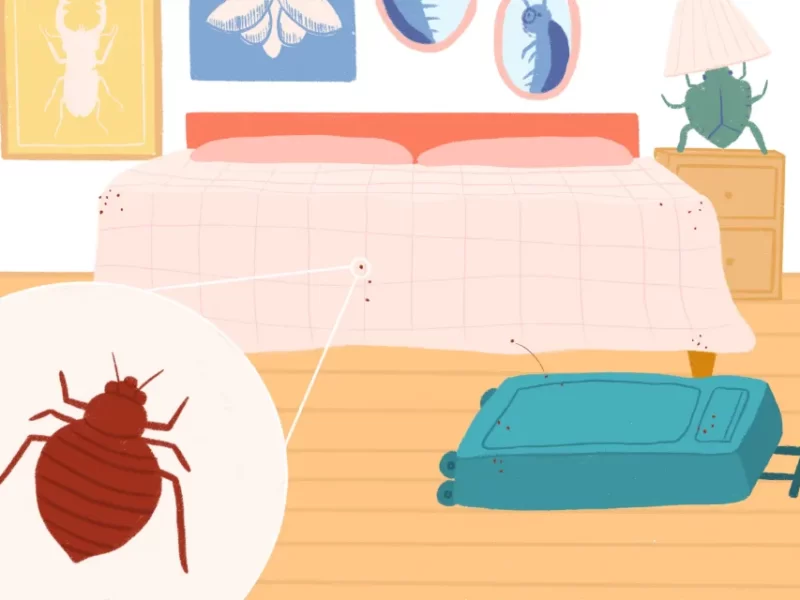It’s possible that older people have a tendency to start talking a lot more. Most of the time, older people have a lot to say, which puts you in a awkward situation.
This article will explain the main causes for why an elderly person might try to cut off your ear whenever you are in close proximity. Consider yourself fortunate to have a lengthy conversation with someone.
Categories of Too Much Talking
Speech evaluation is a component of a mental status examination, a type of evaluation that mental healthcare professionals frequently carry out during appointments. A person’s speech can frequently provide clues about their mental state.
The types of excessive talking are listed below.
Pressured
Pressured speech is fast-paced, urgent speech that makes it difficult for other people to interrupt or speak clearly. This can happen when a person has bipolar disorder, schizophrenia, is using drugs, or is going through a manic episode. It can also happen when someone is experiencing severe anxiety.
Hyperverbal
Talking quickly with an increased word count or word rate is known as hyperverbal speech. This kind of speech may be a sign of anxiety or a manic episode in progress.

Disorganized
Speech that is not well-organized can be difficult to follow because it jumps from one idea to another quickly.
Ideas that do not make sense together or are used out of context can also be a sign of disorganized speech. Schizophrenia has been linked to disorganized speech.
Compulsive
A person who feels they can’t stop talking or who talks compulsively and nonstop is said to have a compulsive talking disorder. Severe anxiety, the effects of drugs, and ADHD are just a few causes for this.
The brain moves quickly between concepts when someone has ADHD. People with ADHD often experience anxiety to the point where they talk excessively, struggle to take turns in conversations, and frequently interrupt others. They also have poor impulse control.
It’s not uncommon for people to talk a lot just to avoid experiencing unpleasant feelings. They can ignore their emotions because they are so preoccupied with talking that they won’t have to deal with the pain or anxiety that may accompany them.
Excessive Talking and Personality
Some personality traits or characteristics may contribute to excessive talking.
Introverts recharge by spending time alone, whereas more extroverted individuals recharge by conversing socially with others. While introverts process more internally and engage in deeper thought, extroverts frequently think aloud.
An extrovert may seem to talk excessively to a more reserved, less talkative introvert, but this may just be a case of different personality types at play.
Why Do the Elderly Talk So Much?
Asking Questions
A lot of people are aware that if you ask an elderly person a question about their life, they will continue to talk. Generally speaking, older people are very respectful and want to fully address your questions.
If you ask an elderly person a personal question, be prepared to hear a story in response. An elderly person frequently has experience with whatever you are asking about, so they will have a story or two to share about any circumstance.
Ask an elderly person a question and pay attention if you have a minute or ten. Occasionally, when someone asks an elderly person to smother and expresses interest in hearing what they have to say, they go from being quiet to becoming animated.
Generation Without Technology
In terms of technology, the generation before you was raised by your grandparents was very different. When they were growing up, they weren’t playing on their phones to test one another.
Grandparents used to gather in person and share tales of what had happened during the day. Before you, generations would have uninterrupted conversations at the dinner table.
It can be simple to forget to stop and listen to each other in the fast-paced world of today. What you might discover about one another during those moments will surprise you.
Lack of Social Awareness
In public settings, older people occasionally experience some social awkwardness. This indicates that many older people engage in conversation with strangers despite not recognizing signals that the stranger wants to end the conversation.
Why Do I Hate My Mother-In-Law So Much? (11 Reasons Why)
A senior may corner people to tell stories, oftentimes regardless of where they are—from doctor’s appointments to the grocery store. The elderly are not malicious.
Grandparents are a simple source for historical salon rumors. They would frequently pause and catch up in public because there were significantly fewer people around and not many things to do besides talk.
The Elderlt Encountered Too Many Things
Someone who has lived on this planet for more than fifty years may have many tales to share. Many people had childhood traumas that were too painful to discuss at the time.
The act of sharing one’s stories can be therapeutic for older people who frequently reflect on their past. Some survivors of concentration camps kept their pasts a secret until they were elderly.
Nobody’s life is ever predictable. It might surprise you to learn that the older man sitting next to you served in the military as a fighter pilot, while the older woman once worked as an actress.
When you consider that older people have occasionally lived two or three lifetimes, it is enlightening. Most of the time, the things that older people have witnessed and experienced could fill entire novels.
The Elderly Are Lonely
Since many elderly people have lived such long lives, almost everyone in their immediate vicinity has passed away. Whether you think they were fortunate to live so long or not, it can be very lonely when everyone has passed away.
It’s very lonely in a world without your parents, siblings, and perhaps even their spouse. They might spend the entire day by themselves, waiting for any kind of outside communication to come into their homes.
When grandparents encounter kids in public, it may serve as a reminder of their own family, whom they do not often get to see. Even though you should never let a stranger touch your child, just letting them speak is sufficient.
Memory Blur
An elderly person may frequently retell stories if their mind is not what it once was. This is fine for strangers, but it can be challenging for a family that visits frequently.
When a family points out that they have already told this story, some members become irritated, while others simply sit quietly and listen. You never know how much time you will have with an elderly person; be grateful for it.

Love Makes People Chatty
If your grandparents are talking nonstop to you, it may be because they genuinely care about you and want to communicate with you. Anyone who will listen can learn a lot from older people’s stories.
It might be overwhelming to hear so many different tales, but try to consider how long ago that moment actually was. You will be grateful that you heard their stories now while you still have the chance because ten years of life can change a lot.
The Elderly Are Bored
Everybody gets bored occasionally, and the average person might get in the car to do something the elderly can’t. In some cases, older people have difficulty using technology.
An older person might not be able to play on their phone or watch Netflix like you can. Play games they used to play, chat with elderly people, or watch shows from a bygone era.
Senior citizens also require stimulation and enjoyment. Allow them to talk to you if they find it enjoyable.
Slow Speaking
Because they speak so slowly, older people occasionally give the impression of talking a lot. If you are a stranger or have other things to do, it might take some time for them to tell their stories, which can annoy you.
Politely stating that you have to leave if you are busy is acceptable. If you have a minute or two to spare, listen to their story even if it drags on longer than it needs to.
Additionally, older people frequently ramble and veer off topic. Be patient with them; something that catches their attention might make them think of an entirely different story.
Conclusion
The elderly simply want someone to share their remaining resources with before it’s too late. Give them a moment to tell their story, whether it’s to your grandparent or someone else, whether it’s in the grocery store.
Why Would An Elderly Person Stop Speaking?
Seniors may lose their ability to talk or understand language—a condition known as aphasia—due to ailments like stroke, Alzheimer’s disease, Parkinson’s disease or brain injury. Aphasia comes in a variety of forms, and each person’s level of symptom severity is unique.
Do Dementia Patients Eventually Stop Talking?
The late stage of Alzheimer’s disease may also be called the “severe” or “advanced” stage. In this stage, the person living with Alzheimer’s eventually becomes unable to communicate verbally or look after themselves. The importance of nonverbal communication is growing.



